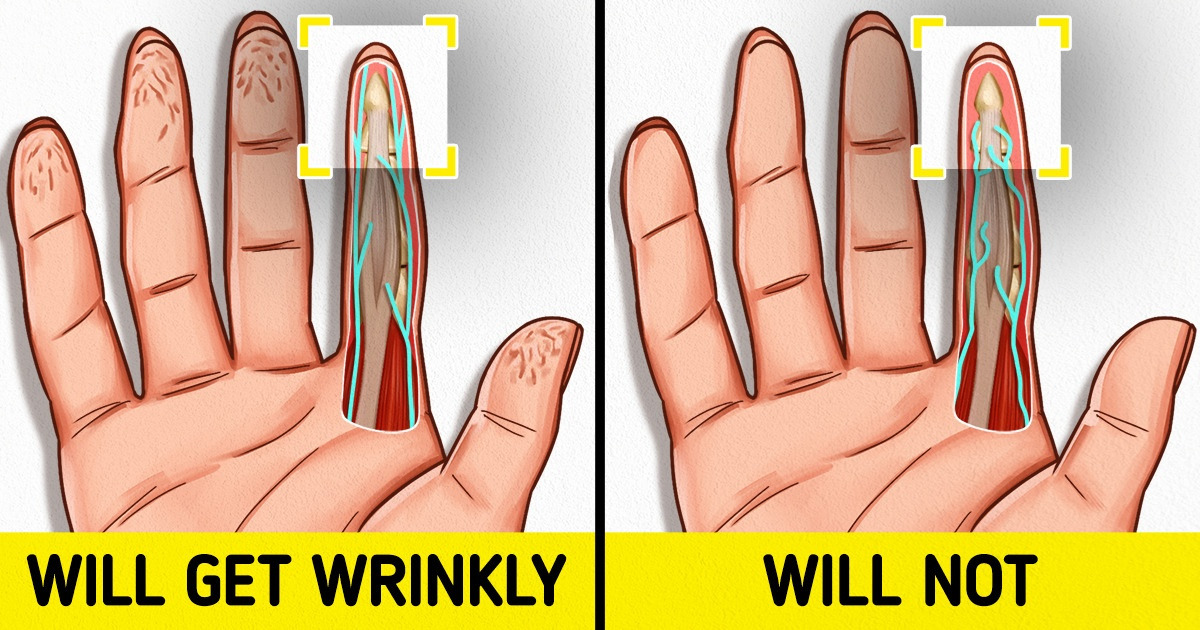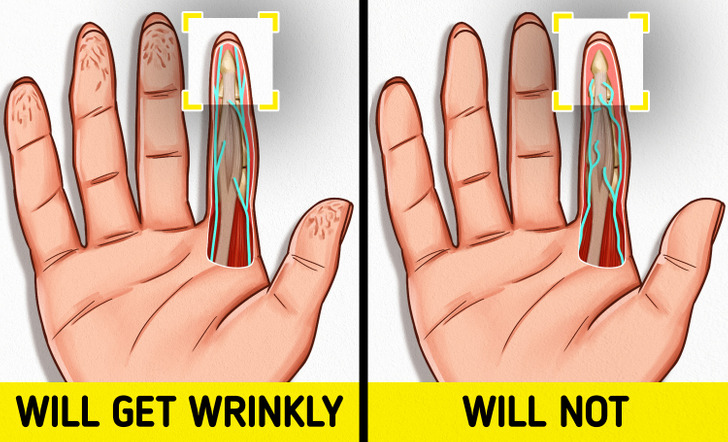Why the Skin on Hands and Feet Get Wrinkly in Water

Many of us have likely noticed that the skin on our hands gets slightly swollen and wrinkly after taking a bath or shower. The same thing happens with the skin on the feet. But why does this happen?
5-Minute Crafts would like to tell you about where these wrinkles come from.
Some people still believe that “wrinkles” on the fingers and toes are due to water passing into the outer layer of the skin. But studies show that this is not actually true. And there are a few facts to back this up.
- If osmosis (water getting from one place to another) was the reason for skin getting wrinkly, then all the skin on our body would wrinkle.
- In reality, the skin is impermeable to water. Water can’t be absorbed or actively released from the skin. This is why water droplets evaporate when placed on the skin and are not absorbed into it.
- The skin on the limbs doesn’t wrinkle in water when the nerves in the fingers are damaged. This means that the change in the structure of the skin is an involuntary reaction of the body’s autonomic nervous system. This system also controls our breathing, perspiration, and heart rate.
In fact, sympathetic nerve activation in our fingers and toes leads to wrinkling of the skin. In response, small capillaries constrict, the volume of blood in the soft tissues decreases, and the skin pulls in, forming folds.

There is still an ongoing debate about why our body needs this mechanism. The most probable theory is that “wrinkles” perform a drainage function, as if funnelling water away from the skin. At the same time, they work similarly to treads on car tyres, improving our skin’s grip on various objects.
Presumably, this simple mechanism helped our ancestors to get food at high humidity. For example, they could pick up small edible parts of wet plants or get things from the bottoms of streams.
If this is true, why aren’t our fingers permanently wrinkled? This is likely because the uneven surface reduces their sensitivity and may increase the risk of damage when catching on objects.